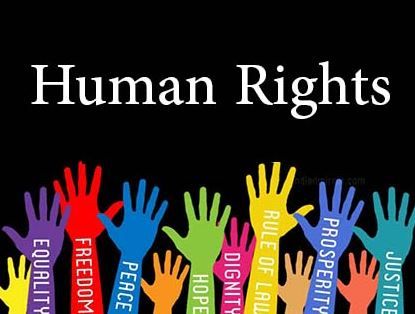Human Rights: Understanding the Fundamentals of Universal Dignity
Outline:
- Introduction
- What are Human Rights?
- Definition and Purpose
- Historical Background
- Universal Declaration of Human Rights
- Adoption and Significance
- Core Principles
- Categories of Human Rights
- Civil and Political Rights
- Economic, Social, and Cultural Rights
- Collective Rights
- The Importance of Human Rights
- Ensuring Dignity and Equality
- Empowering Individuals and Societies
- Promoting Peace and Stability
- Challenges to Human Rights
- Violations and Abuses
- Cultural Relativism vs. Universality
- The Role of International Organizations
- United Nations
- Human Rights Watch
- Amnesty International
- Progress and Achievements in Human Rights
- Landmark Cases and Reforms
- Advancements in LGBTQ+ Rights
- Women’s Rights Movement
- Human Rights Education and Advocacy
- Empowering Communities
- Raising Awareness
- Future of Human Rights
- Emerging Issues
- Intersectionality and Inclusivity
Human Rights
Understanding the Fundamentals of Universal Dignity
Introduction
Human rights are the foundation of a just and equitable world, enshrining the inherent dignity and worth of every individual. In this article, we delve into the principles, significance, and challenges surrounding human rights, acknowledging their role in fostering a world built on compassion and respect for all.
What are Human Rights?
Definition and Purpose
Human rights are the basic entitlements and freedoms that every person is inherently entitled to, simply by virtue of being human. These rights are universal, inalienable, and indivisible, emphasizing the equal value of all individuals.
Historical Background
The concept of human rights dates back centuries, with historical milestones like the Magna Carta and the Bill of Rights laying the groundwork for modern human rights principles. The atrocities of World War II further underscored the urgent need for a global commitment to protect and promote human dignity.
Universal Declaration of Human Rights
Adoption and Significance
In 1948, the United Nations General Assembly adopted the Universal Declaration of Human Rights (UDHR), a groundbreaking document that proclaims the fundamental rights and freedoms to which all human beings are entitled. The UDHR serves as a beacon of hope, inspiring nations to strive for a world where human rights are respected and upheld.
Core Principles
The UDHR encompasses a wide range of civil, political, economic, social, and cultural rights. Key principles include the right to life, liberty, and security, freedom of expression, education, and the right to work and participate in cultural life.
Categories of Human Rights
Human rights can be classified into three main categories:
Civil and Political Rights
These rights focus on individual freedoms and liberties, including the right to vote, freedom of speech, religion, and assembly. They form the bedrock of democratic societies.
Economic, Social, and Cultural Rights
These rights pertain to the well-being and social security of individuals, encompassing access to healthcare, education, housing, and fair working conditions.
Collective Rights
Collective rights are the rights of specific groups, including indigenous peoples and minority communities, to preserve their cultural identity and participate in decision-making processes.
The Importance of Human Rights
Ensuring Dignity and Equality
Human rights safeguard the dignity and equality of all individuals, irrespective of their race, gender, religion, or social status.
Empowering Individuals and Societies
By guaranteeing individual freedoms and opportunities, human rights empower people to reach their full potential and contribute positively to society.
Promoting Peace and Stability
Respecting human rights is crucial for building peaceful and stable societies, as it fosters understanding, tolerance, and cooperation among diverse communities.
Challenges to Human Rights
Violations and Abuses
Despite global commitments, human rights violations persist in many parts of the world. Issues like torture, discrimination, and lack of access to basic necessities continue to challenge progress.
Cultural Relativism vs. Universality
Debates arise over whether human rights should be universally applicable or if they should be viewed through the lens of cultural relativism, considering cultural, historical, and social contexts.
The Role of International Organizations
United Nations
The United Nations plays a central role in promoting and protecting human rights through various agencies, treaties, and resolutions.
Human Rights Watch
As an independent human rights group, Human Rights Watch investigates and exposes human rights abuses worldwide, advocating for justice and accountability.
Amnesty International
Amnesty International campaigns against human rights violations, mobilizing people globally to demand dignity and justice for all.
Progress and Achievements in Human Rights
Landmark Cases and Reforms
Throughout history, landmark legal cases and policy reforms have advanced human rights causes and brought about positive change.
Advancements in LGBTQ+ Rights
The LGBTQ+ rights movement has made significant strides, securing legal recognition and protection in various parts of the world.
Women’s Rights Movement
The women’s rights movement has been instrumental in challenging gender discrimination and promoting gender equality.
Human Rights Education and Advocacy
Empowering Communities
Human rights education equips individuals with knowledge about their rights and responsibilities, fostering active citizenship and advocacy.
Raising Awareness
Advocacy efforts and awareness campaigns shed light on human rights issues, mobilizing public support and pressuring governments to take action.
Future of Human Rights
Emerging Issues
As societies evolve, new challenges such as digital rights, climate change, and technological advancements pose complex human rights questions.
Intersectionality and Inclusivity
Addressing the intersecting nature of various forms of discrimination is essential in ensuring inclusivity and equality for all.
Conclusion
Human rights stand as the bedrock of a just and compassionate world, providing a framework for societies to respect and protect the dignity of every individual. By upholding human rights, we foster an inclusive and harmonious global community, committed to building a brighter future for generations to come.
Do follow us https://uniqverses.com/
FAQs
1. Are human rights applicable to everyone, regardless of nationality?
Yes, human rights are universal and apply to all individuals, regardless of their nationality or citizenship.
2. What can individuals do to support human rights causes?
Individuals can support human rights causes by educating themselves, raising awareness, advocating for change, and supporting organizations working towards these goals.
3. How does the violation of human rights impact societies?
The violation of human rights can lead to social unrest, conflicts, and a breakdown of trust in institutions, hindering societal progress and development.
4. Can governments limit certain human rights in the name of national security?
While governments may impose certain restrictions during exceptional circumstances, any limitations on human rights must be proportionate, necessary, and temporary.
5. How can cultural relativism be balanced with the universality of human rights?
Balancing cultural relativism and universality requires acknowledging diverse cultural practices while









